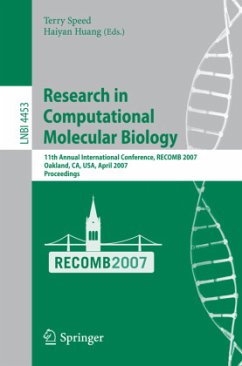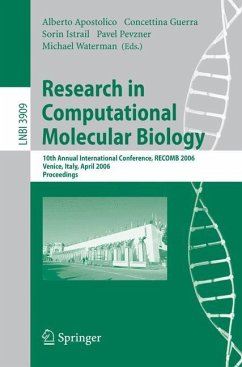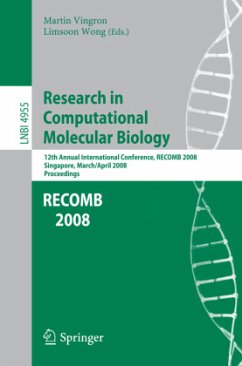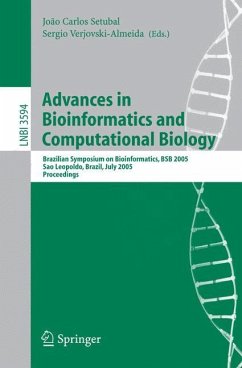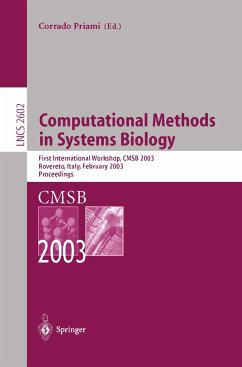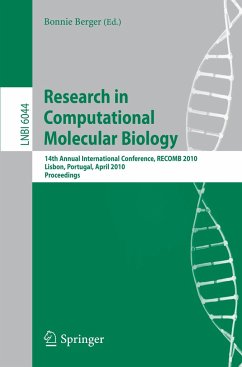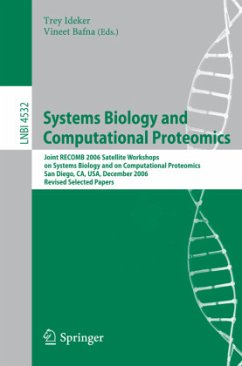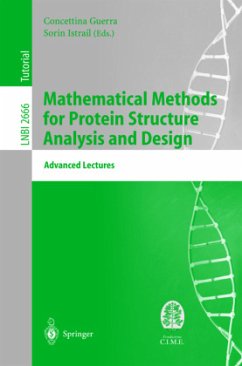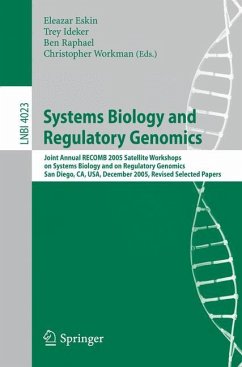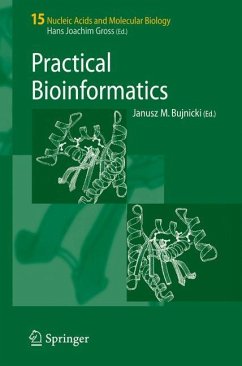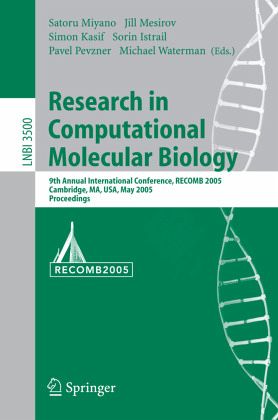
Research in Computational Molecular Biology
9th Annual International Conference, RECOMB 2005, Cambridge, MA, USA, May 14-18, 2005, Proceedings
Herausgegeben: Miyano, Satoru; Mesirov, Jill; Kasif, Simon; Istrail, Sorin; Pevzner, Pavel; Waterman, Michael

PAYBACK Punkte
39 °P sammeln!
This volume contains the papers presented at the 9th Annual International Conference on Research in Computational Molecular Biology (RECOMB 2005), which was held in Cambridge, Massachusetts, on May 14-18, 2005. The RECOMB conference series was started in 1997 by Sorin Istrail, Pavel Pevzner and Michael Waterman. The list of previous meetings is shown below in the s- tion "Previous RECOMB Meetings. " RECOMB 2005 was hosted by the Broad Institute of MIT and Harvard, and Boston University's Center for Advanced - nomic Technology, and was excellently organized by the Organizing Committee Co-chairs...
This volume contains the papers presented at the 9th Annual International Conference on Research in Computational Molecular Biology (RECOMB 2005), which was held in Cambridge, Massachusetts, on May 14-18, 2005. The RECOMB conference series was started in 1997 by Sorin Istrail, Pavel Pevzner and Michael Waterman. The list of previous meetings is shown below in the s- tion "Previous RECOMB Meetings. " RECOMB 2005 was hosted by the Broad Institute of MIT and Harvard, and Boston University's Center for Advanced - nomic Technology, and was excellently organized by the Organizing Committee Co-chairs Jill Mesirov and Simon Kasif. This year, 217 papers were submitted, of which the Program Committee - lected 39 for presentation at the meeting and inclusion in this proceedings. Each submission was refereed by at least three members of the Program Committee. After the completion of the referees' reports, an extensive Web-based discussion took place for making decisions. From RECOMB 2005, the Steering Committee decided to publish the proceedings as a volume of Lecture Notes in Bioinf- matics (LNBI) for which the founders of RECOMB are also the editors. The prominent volume number LNBI 3500 was assigned to this proceedings. The RECOMB conference series is closely associated with the Journal of Compu- tional Biology which traditionally publishes special issues devoted to presenting full versions of selected conference papers. The RECOMB Program Committee consistedof42members,aslistedonaseparatepage. Iwouldliketothank the RECOMB 2005 Program Committee members for their dedication and hard work.





